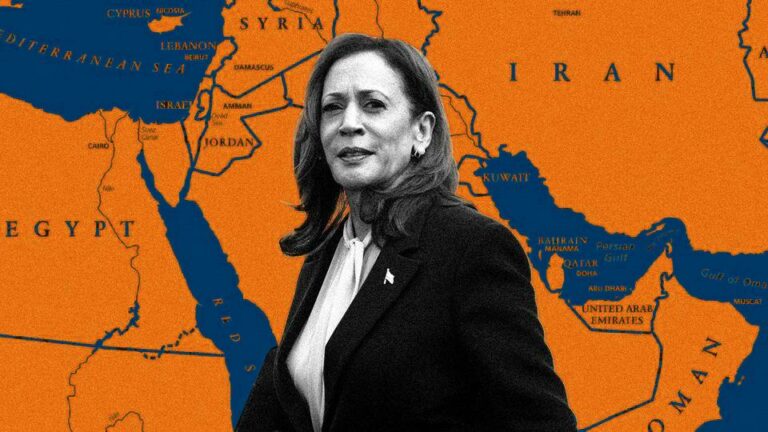By Andrea Tucci,
US Vice President Kamala Harris, the Democratic candidate in the upcoming US presidential election, has a long history of supporting Israel on multiple fronts. Her stance on Israel’s ongoing genocide in Gaza, now in its tenth month, is under close scrutiny. How she will position herself on this issue remains a key point of interest.
In 2017, she delivered a speech at the American Israel Public Affairs Committee (AIPAC) describing ” The bond between Israel and the US as unbreakable.”
One of Harris’ first legislative actions as a senator was cosponsoring a bill opposing a UN Security Council resolution that “condemned Israeli settlements in the West Bank and East Jerusalem.”
When asked by the New York Times whether she believes Israel meets international human rights standards, Harris responded: “Overall, yes.”
A report by The Times of Israel confirms that over the course of her life and career, Kamala Harris has been surrounded by Jews, from her schoolmates to her husband, Doug Emhoff.
Emhoff, works as a lawyer specializing in media, sports, and entertainment law, and is the first Jewish husband of a US Vice President. Friends describe him as “a less-than-observant Jew but one who identifies strongly with, and is deeply shaped by Judaism.”
However, Kamala Harris has opposed some Israeli policies, notably Israel’s annexation of neighborhoods in the West Bank, which she described as a “unilateral” move detrimental to Israel. Harris also refused to support the US Israel Anti-Boycott Act, a legislation that criminalizes boycotting Israel.
In antithesis, in the 2023 she voted for security assistance to Israel, almost $4 billion per year.
But Harris has “also stirred concerns among some pro-Israel Jews” due to her positions on the Gaza war and student protests against it. “She has staked out positions that are sympathetic to some of the war’s strongest critics” and that she might fail to offer the same level of support that Biden has provided. Additionally, her endorsement of a two-state solution conflicts with the goals of many in the Jewish community. But it is certainly true that Israel is crucial for elections in the United States due to the significant influence of the Zionist lobby.
The approach Harris is likely to take in the region is not obvious, and difficult to define.
So, those who seek to understand Harris’s future foreign policy tend to look to the much more elaborated worldview of Philip Gordon, the vice president’s closest adviser on Middle East affairs and her national security adviser since 2022.

Philip Gordon
Now 62, Gordon served under President Bill Clinton as well as Obama and has written dozens of articles and books. . When Israel fought Lebanon’s Hezbollah in 2006, Gordon called Washington’s support for the war “a disaster.” A year later, he published “Winning the right War”, a book-length critique of Bush’s Middle East policy that advocated withdrawing from Iraq and Afghanistan, engaging Iran with a mix of sanctions and talks, and bringing about an Arab-Israeli peace.
And one more name has emerged in the past week: Ilan Goldenberg, an Israeli American Middle East, Harris has appointed him her liaison to the Jewish community and tasked him on Israel, the war in Gaza, and the broader Middle East.

Ilan Goldenberg
Goldenberg’s profile is a policy professional who served the Obama administration in top Middle Eastrelated positions in the Pentagon and State Department. He has long advocated for a two-state solution to the Israeli-Palestinian conflict.
At this point, Harris’s lack of a grand vision for the Middle East could turn out to be a blessing, and Middle Eastern affairs suggest that shel will resist the temptation to wash her hands towards a region that is certainly very problematic.




